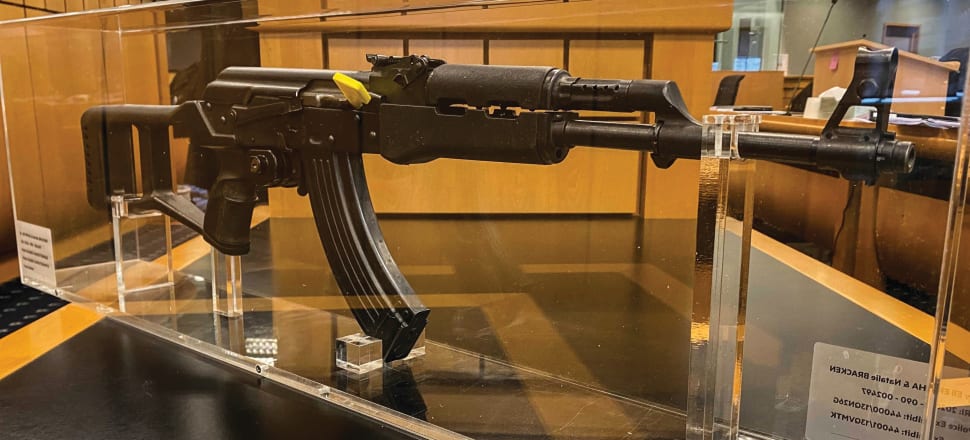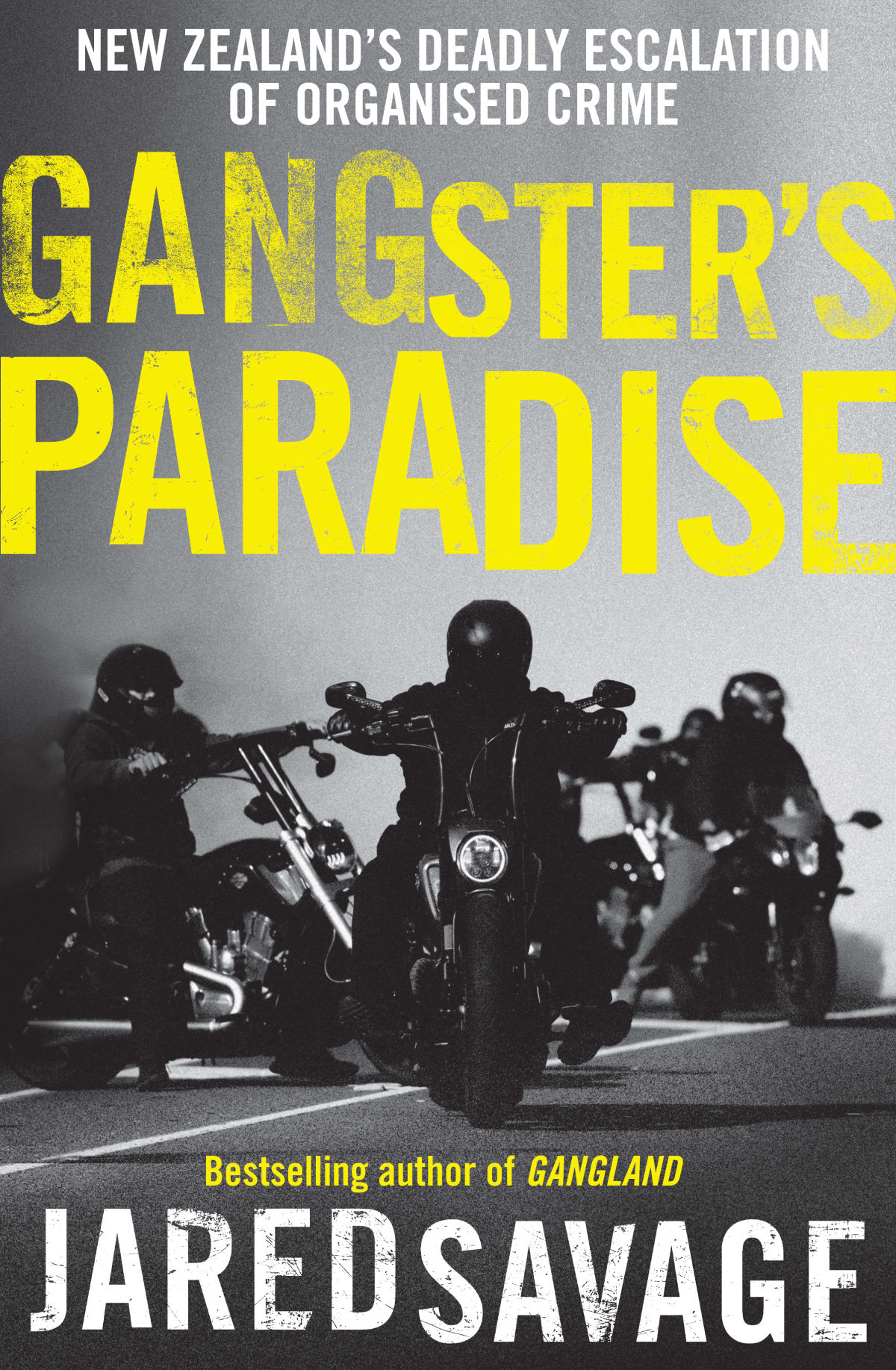
A new book on organised crime could be reframed as "The failure to prioritise human rights in public policy leads to a crappier world for all"
Look, I know Jared Savage is clearly going to be more fun than I am at parties - who wouldn’t want to be regaled by wild tales of gangsters being tailed in daring undercover missions involving drugs, bling and crazy weapon stashes? It makes my "Hey, could we all have dignity to live a good life" stuff a little pale in comparison. My kids are begging to watch Breaking Bad; they’re not hustling to watch the live cross of the 54th session of the human rights council. Hear me out, though. An alternative take on Jared Savage’s new ripping yarn on organised crime Gangster’s Paradise could be reframed as "The failure to prioritise human rights in public policy leads to a crappier world for all".
Okay so the title is not as catchy but trust me - from the opening pages canvassing Australia’s controversial 2014 immigration changes that led to the 501 deportees to Aotearoa, to the focus on drugs as a criminal issue rather than a health-issue, to the lack of appropriate gun control laws, this book has a deeper story to tell than gang warfare. And I would argue the book is actually at its best when Savage (amazing name for this line of work by the way) takes a deep breath and dives into the back story. The chapter on Kawerau, with its brief reflection on the economic and political drivers that led the town down a path of deprivation, is one of the most arresting in Gangster's Paradise. It left me wanting a little less of the swift gallop through one drug bust after another and more of the considered analysis.
The book immediately throws you into a world that, for many of us, is something we’ve heard about rather than experienced. It will be read by those interested in the social elements of crime, drug law and justice as well as people looking for something to get as a summer read. As I understand it, the first book also became the must-have accessory for gang-pads around the country so I assume this one will also be popular for the gangs it delves into or those gangs who want to dethrone the current kingpins.
At times the book has the feel of a movie-script, with a complicated cast of hundreds and multiple twists of violence, drug deals, and gang rankings. Gangster’s Paradise is peppered with the actual conversations of gangsters, intercepted by police operations, which Savage uses at crucial moments to bring the narrative alive. Sometimes I got lost in which gang, which gangster, which drug deal and which quirky nickname as the stories kept coming. Savage does a good job to assemble the various headline busts into a coherent narrative, as well as touching on the societal issues bubbling underneath.
The tale within Gangster's Paradise is an account of stretched police resources and the realisation that it's largely a game of whack-a-mole
But the constant churn of stories also hints at the potential futility of trying to defeat organised crime with policing. Certainly it's a nod to the complex and hard work our police do in difficult circumstances (including at risk to their own life). Toward the end of the book Savage himself attempts to address the issue, in response to the consistent questioning he has received from his readers about what he thinks the cops can do to stop gangs and drugs. He touches on the reductionist political discourse that’s often used to talk about gangs and how it’s cyclical (a cycle that peaked when we went to the polls.) So what can police do? "You cannot stop a hydra with even more than nine heads," Savage writes. The tale within Gangster's Paradise is an account of stretched police resources and the realisation that it's largely a game of whack-a-mole. With each drug bust, and each gang leader sent to prison, another one steps forward, steps up, and is deported from Australia to take their place.
All of which brings me back to where I started this review: the human rights conundrum that are inherent in the pages of this gripping take on gangs. My argument is that that it points to the need for long-term, human rights-led policy responses to complex global problems. One of the most obvious of these is treating drugs as a human rights issue – one that impacts across the spectrum of rights including right to health, right to be free from discrimination, right to be free from arbitrary detention, fair trial rights and so on. The United Nations Office on Drugs and Crime is focused on supporting countries to focus on solutions that are guided by rights and health approaches. Otherwise, people with already vulnerable identities, pregnant women, people of colour, people with mental health issues, FASD or head injuries, are often disproportionately impacted by the criminalisation and 'war on drugs' that we've seen roll out in countries around the world.
Savage points to some of these vulnerabilities when talking about the socio-economic pressures that led people to drugs (Kawerau), the social isolation and displacement that occurred for the '501' deportees, and the Māori and Pacific men who are prominent in gang leadership in these pages (and disproportionality prominent in a range of pressing human rights stats). One of the starkest consequences for Mongols leader JD Thacker was placement in the toughest of the tough units in Paremoremo prison, known as PERU: Prisoners of Extreme Risk. He has been kept there for over three years. The impact of solitary confinement can only be imagined. As Savage mentions, the Mandela Rules that set the standards for prisons exist for a reason. Neglecting those rules can amount to torture and cruel, inhumane, and degrading treatment. It’s understood Thacker is in there alongside the man that massacred 51 people in Christchurch in 2019. Thacker’s lawyers are currently taking a challenge to his housing in PERU to the Court of Appeal.
While we might at times enjoy being slightly isolated at the bottom of the world, the book is also arguably a call for our leaders to think globally when acting locally. Savage's stories intersect across borders, not only with our neighbours in Australia but to China, Fiji, the US and Turkey. The book includes a drug bust that spanned 16 countries and involved police work across all the different jurisdictions. The policies and approaches to organised crime, drugs and immigration that these countries take also have ripple effects across our own population. This is again where a human rights frame would be an advantage. All these countries have differences in terms of geography, history and culture but human rights are universal.
Complex problems require complex solutions. I'd like to think that Savage's sensational telling of the complex web of organised crime will make people think about some of these nuances. The wild tales in Gangster's Paradise have the potential to make a wide audience think harder about our current approach to gangs, guns, drugs and policing. A toast, then, to Jared Savage, for sowing the seeds as an accomplished journalist and author.
Gangster’s Paradise: New Zealand’s deadly escalation of organised crime by Jared Savage (HarperCollins, $39.99) is available in bookstores nationwide.








